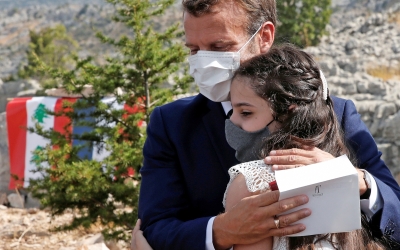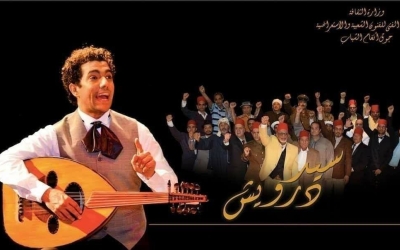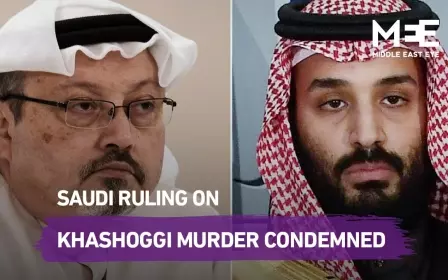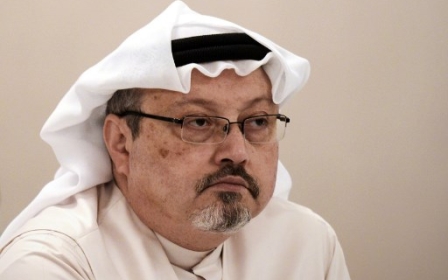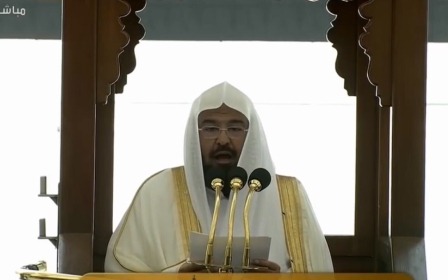US official urges 'structural' steps against rights abuses in Saudi Arabia
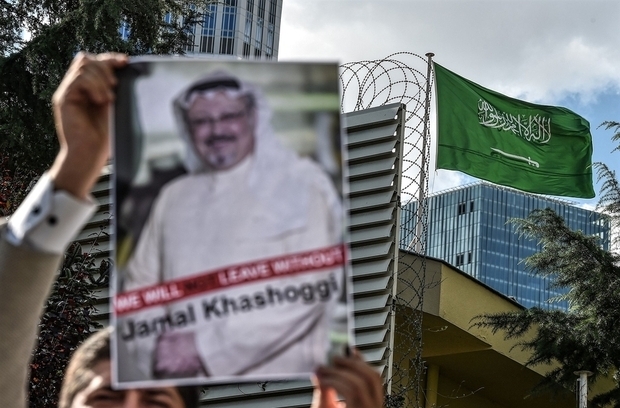
A top US official has warned Saudi Arabia and other Middle Eastern countries that Democrats may gain power one day and impose greater pressure to uphold human rights in the region, calling on Riyadh to implement "structural" reforms to prevent future abuses.
Speaking virtually at the Washington-based Brookings Institution, Assistant Secretary of State for Near Eastern Affairs David Schenker said his office has been pressing Middle Eastern countries, including Saudi Arabia and Egypt, on human rights.
"It's a priority for me; it's a priority for the secretary," Schenker said, referring to his boss, Mike Pompeo.
The US diplomat addressed the recent verdicts in the Saudi trial for suspects involved in the killing of Jamal Khashoggi, saying that Washington is monitoring the situation.
A Saudi court sentenced eight defendants to seven to 20 years in jail, commuting the death sentences of five suspects following a pardon from Khashoggi's family.
"We continue to engage our Saudi partners to ensure that authorities complete a comprehensive investigation of Khashoggi's murder and to hold those accountable responsible and to take actual structural steps to prevent such abuses from from happening in the future," Schenker said.
Khashoggi, a columnist who wrote for the Washington Post and Middle East Eye, was killed and dismembered by Saudi government agents at the kingdom's consulate in Istanbul.
Pressure in Washington
The gruesome murder in October 2018 sent shockwaves through Washington, with Democrats calling for rethinking America's relationship with Riyadh as President Donald Trump moved to shield the kingdom's rulers from accountability.
The CIA had concluded that Saudi Arabia's powerful Crown Prince Mohammed bin Salman was behind the assassination. But the White House has resisted congressional pressure to release a full report of the intelligence community's findings.
Over the past two years, Congress - specifically the Democratic-controlled House of Representatives - has moved to push back against Riyadh by blocking arms sales and calling for an end to US support for the Saudi-led war in Yemen.
Trump vetoed both efforts. On Wednesday, Schenker suggested that the kingdom's Republican shield in Congress and the White House may disappear if Democrats gain power.
"It's quite possible someday you're going to get a Democratic majority in the House and in the Senate, right," Schenker said. "What I want to do in the case of Saudi Arabia is to cross off all the irritants in our bilateral relationship related to human rights, and there are some irritants out there."
'On the agenda'
He said human rights are "on the agenda" when US officials meet their Saudi or Egyptian counterparts.
"Every time I engage with the Saudis, I raise the issues of Walid Fitaihi and Loujain al-Hathloul and others who have been imprisoned," Schenker said.
Fitaihi is an American citizen who is a physician and motivational speaker who was arrested without charge in 2017. He was released last year but remains under heavy restrictions, including a travel ban.
'Every time I engage with the Saudis, I raise the issues of Walid Fitaihi and Loujain al-Hathloul and others who have been imprisoned'
- David Schenker, US official
Hathloul is a renowned women's rights advocate who has been detained in Saudi jail since 2018, where she has endured torutre and sexual harassment, according to her family members and rights groups. Riyadh denies torturing detainees.
Schenker tackled another area where Riyadh has faced accusations of human rights violations, including air strikes against civilians.
The US diplomat said he is convinced that the Saudis "want to end this war", blaming the Houthi rebels for failure to find a negotiated solution to the conflict.
"The Houthis have not been particularly productive partners in this negotiation," he said.
"It seems as though they believe that they are on the verge of winning… and aren't interested in the goodwill negotiations about having a unified Yemeni government in which they would certainly play a significant role."
Middle East Eye delivers independent and unrivalled coverage and analysis of the Middle East, North Africa and beyond. To learn more about republishing this content and the associated fees, please fill out this form. More about MEE can be found here.


